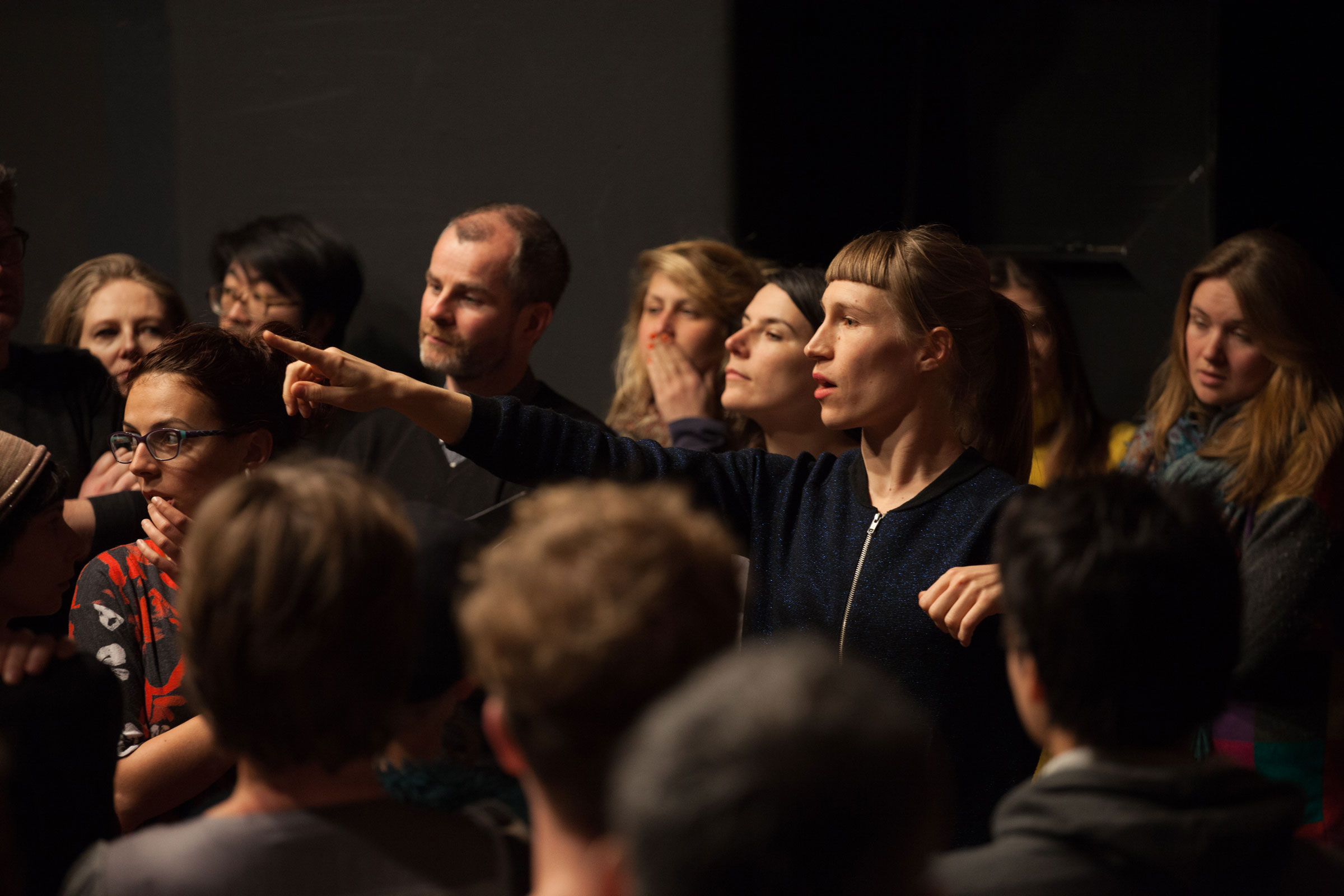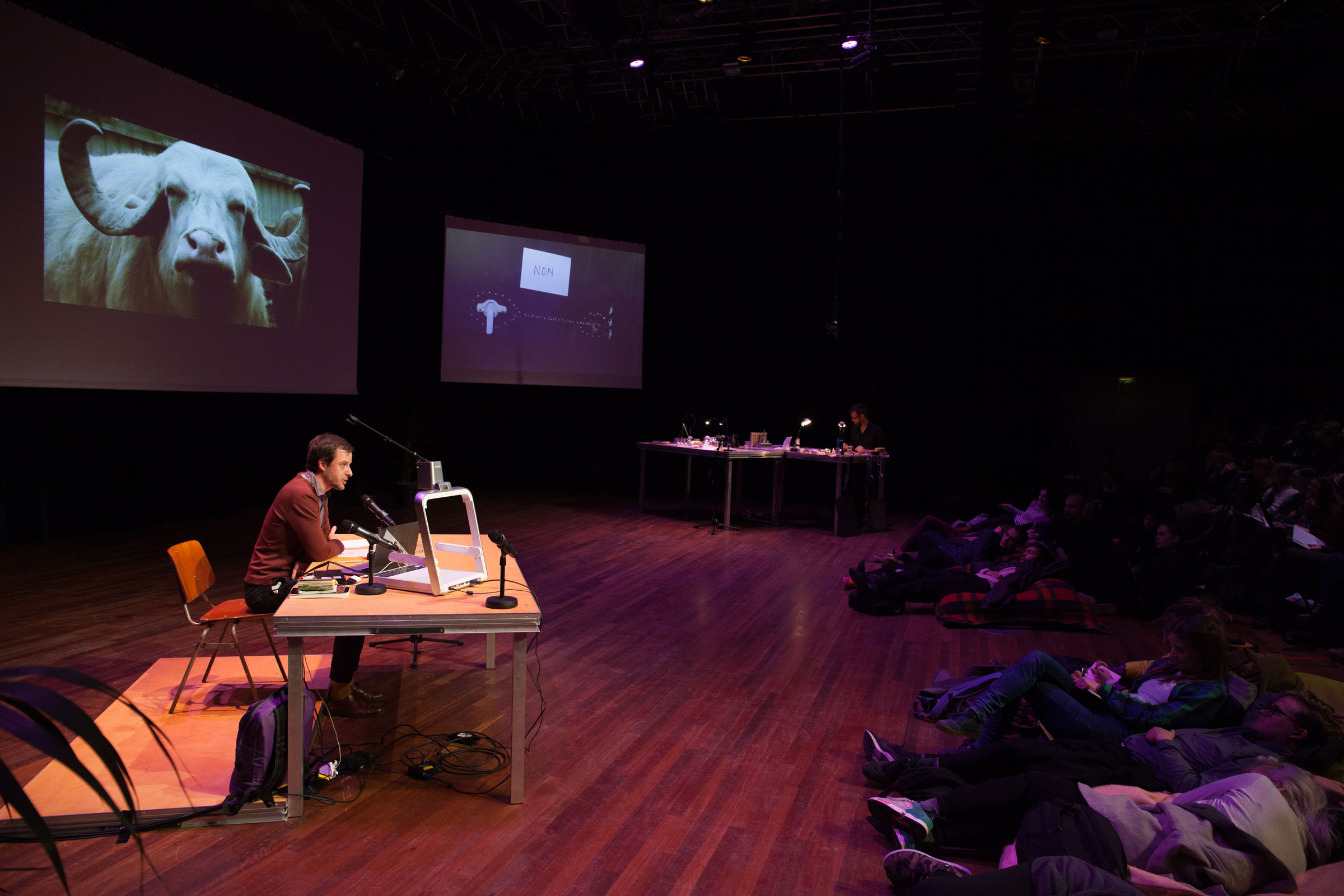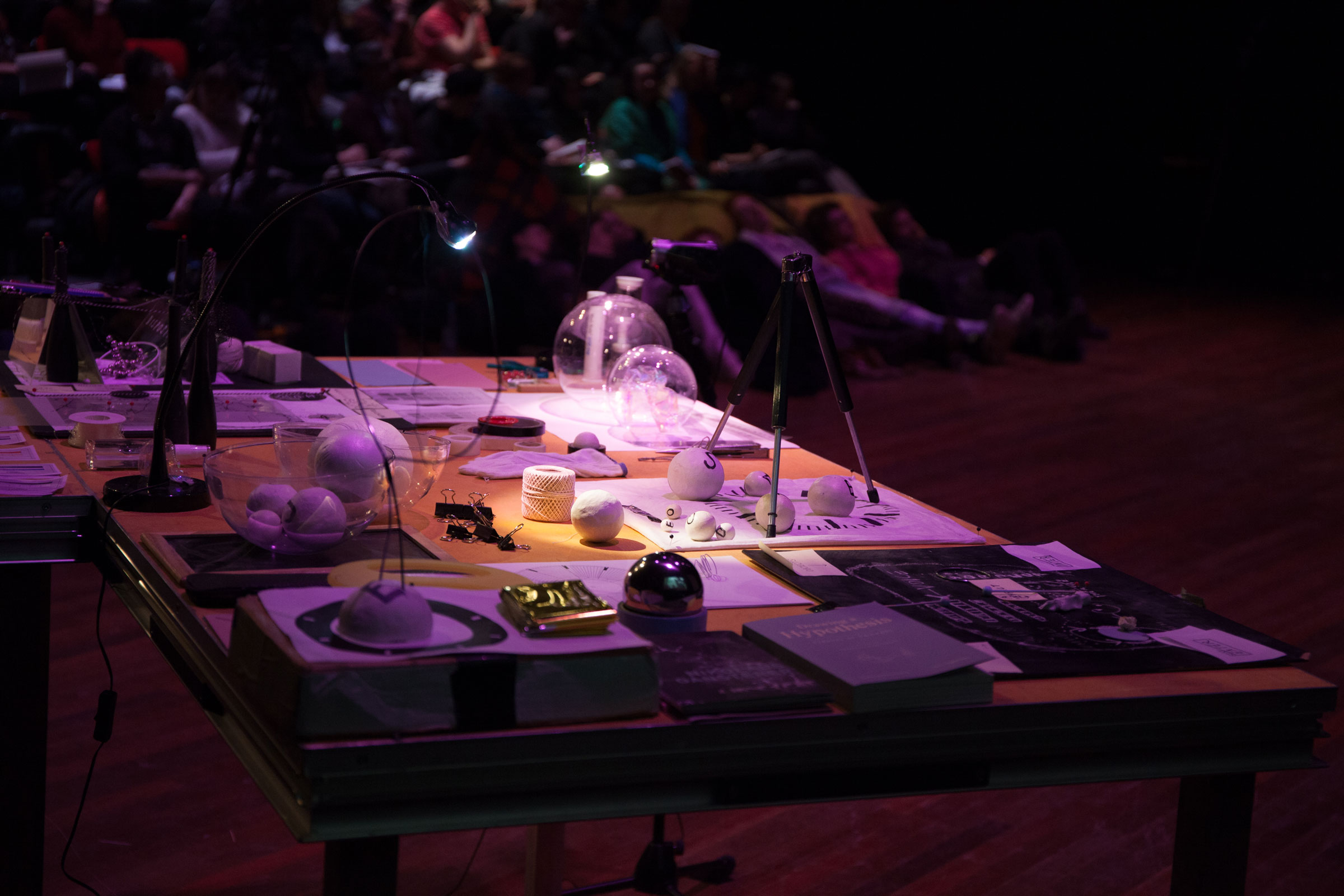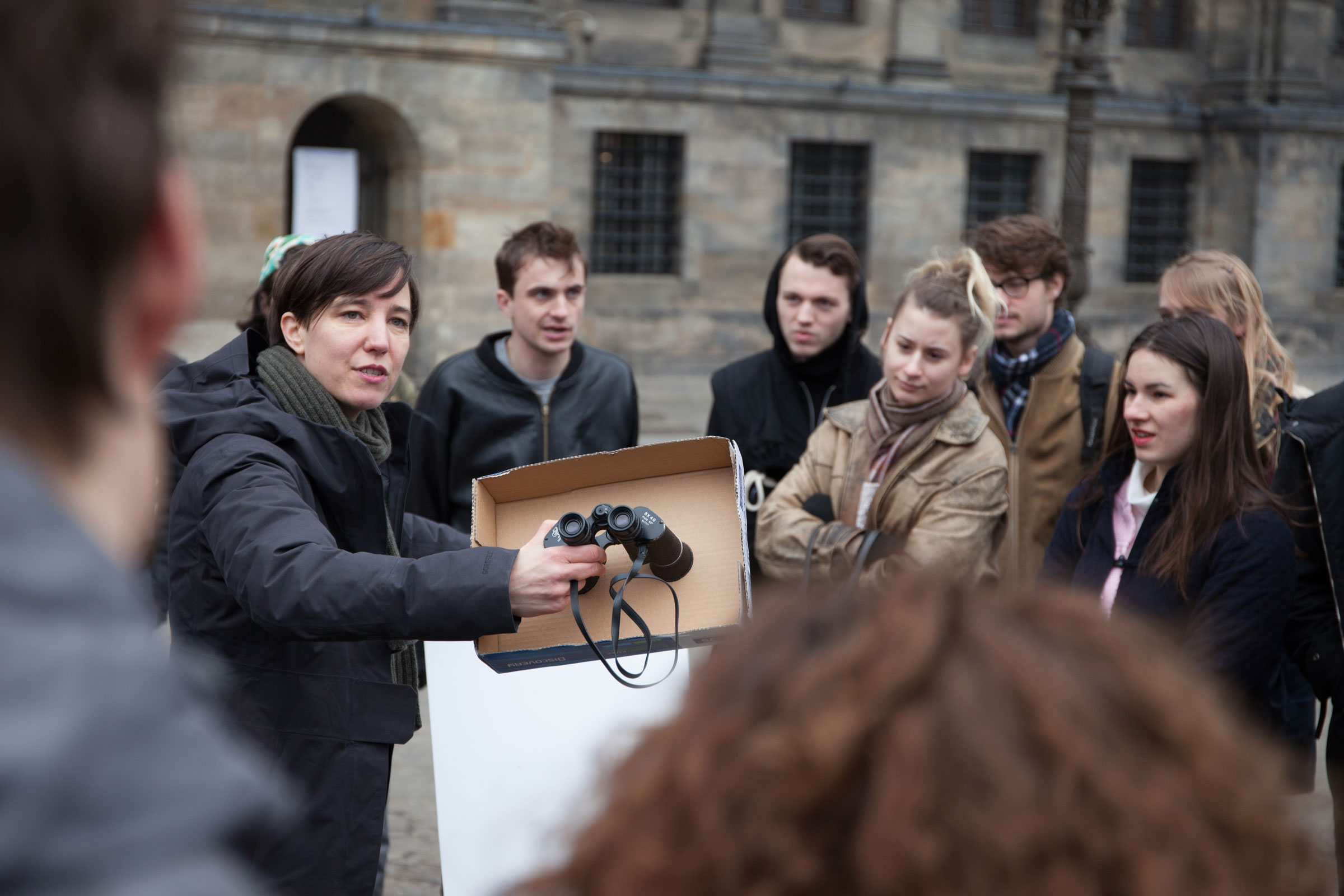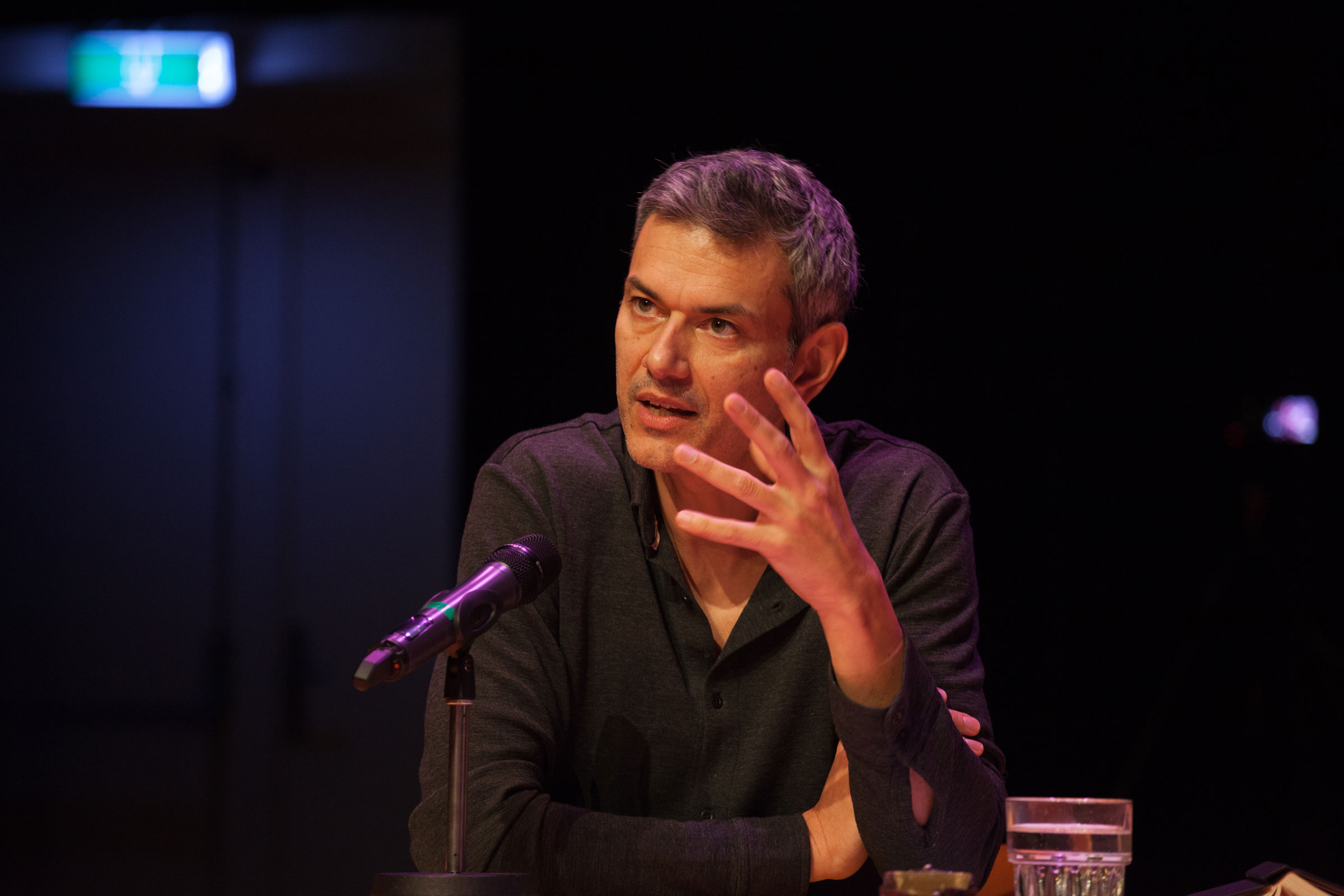During the past years, theatre maker David Weber-Krebs and theoretician/dramaturge Jeroen Peeters have been developing the project On Enclosed Spaces and the Great Outdoors. This project addresses the question: how are the arts (its questions, forms, research and discourses) challenged by climate change?
So far, it’s taken on the form of a performative conference that had four editions:
* 1. More than Human Participation (De Brakke Grond, 2015)
* 2. Limits of Human Sensorium (Kaaitheater, 2018)
* 3. Decolonial Ecologies (De Brakke Grond, 2020)
* 4. Grounding (Kaaitheater, 2021)
* 5. Exercising Fragility in Theatres and Beyond (Zwarte Zaal/Ghent, 2024)
- concept by
- david weber-krebs & jeroen peeters
- curated by
- david weber-krebs & jeroen peeters
- supported by
- kaaitheater, DAS theatre, gerrit rietveld academie, brakke grond, BUDA kunstencentrum, damaged goods
watch the four editions of On Enclosed Spaces and the Great Outdoors
